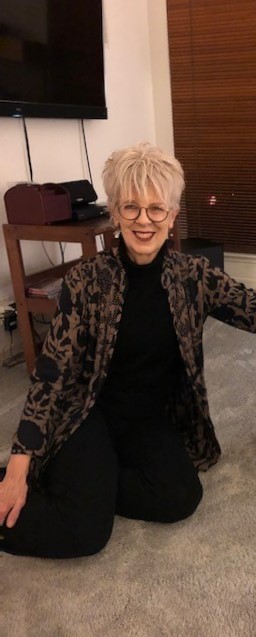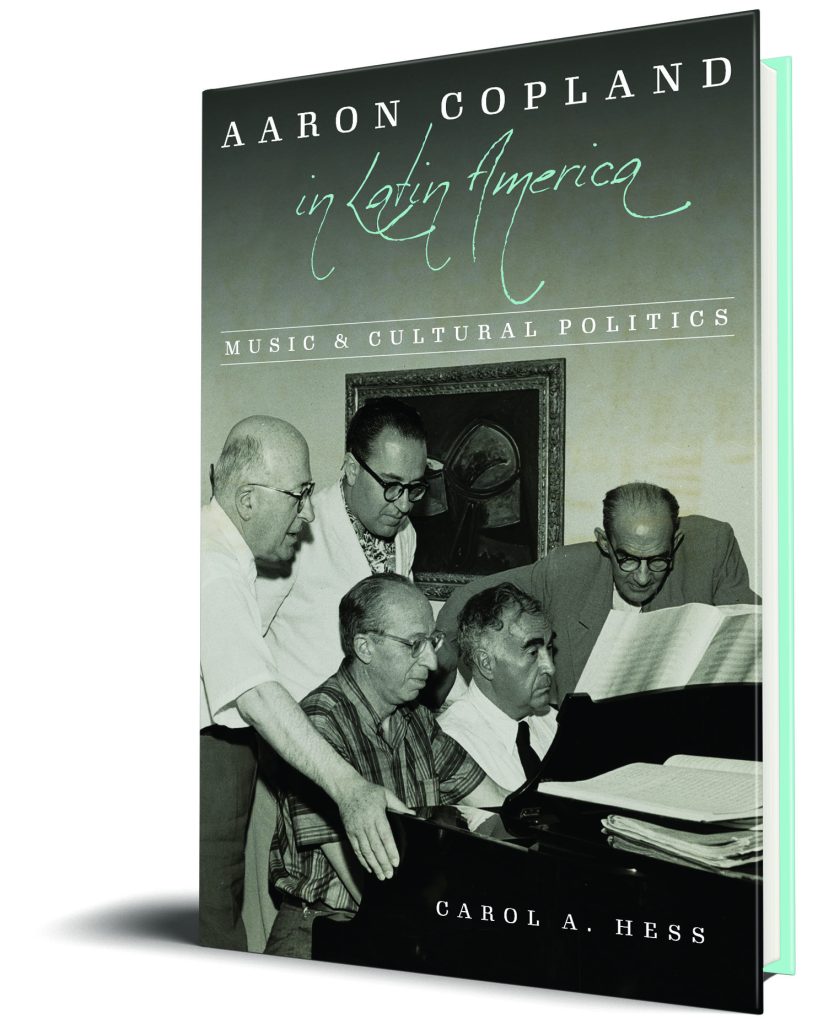Carol A. Hess, author of Aaron Copland in Latin America: Music and Cultural Politics, answers questions on her scholarly influences, discoveries, and reader takeaways from her new book.
Q: Why did you decide to write this book?
I became interested in cultural diplomacy after I had the good fortune to teach in Spain and Argentina as a Fulbright lecturer. (I also taught in Chile.) Each time, I presented some aspect of music in the United States. But I was equally eager to observe my students’ perceptions of music from their respective countries. I then decided to learn more about the history of the Fulbright program and cultural diplomacy in general, especially in relation to music of the Spanish- and Portuguese-speaking world. That, along with Copland’s stature as a major U. S. composer, led to this book.
Q: Who were your biggest influences?
I have always looked up to idealists who manage to hold fast to their principles but still get something done: Franklin and Eleanor Roosevelt come to mind. So does the British pianist Dame Myra Hess, a splendid artist who offered solace to weary Londoners during World War II through a series of concerts she organized and in which she also performed.
Q: What is the most interesting discovery you made while researching and writing your book?
When I decided to become a musicologist, back in the 1990s, Latin American popular music circulated widely in the United States but classical music wasn’t taken all that seriously. In a previous book, I explored some of the political and historical reasons for this indifference. I focused on President Franklin Roosevelt’s Good Neighbor Policy of the 1930s and 40s, a series of policies intended to shore up solidarity in the Americas in the face of European fascism. Another tool was government-sponsored cultural diplomacy, something the United States hadn’t previously undertaken and for which Latin America was the testing ground.
During that period, Latin American classical music really mattered. The State Department sponsored exchange visits of composers, contests, and concerts. Private foundations and even some businesses supported Latin American music, as well. U. S. music critics wrote glowing reviews of works by Latin American composers. Why did all that go away? To be sure, interest in Latin American music never completely disappeared. But it waned considerably during the Cold War, an era of much political tension between the United States and its erstwhile “neighbor” in the hemisphere.

In researching Aaron Copland in Latin America, I’d like to suggest that although the Good Neighbor Policy certainly wasn’t perfect, we can learn a great deal from studying our past efforts to nurture positive relations with Latin America. We can also learn a great deal about Latin American classical music, with Copland as our guide.
Q: What myths do you hope your book will dispel or what do you hope your book will help readers unlearn?
That Latin American classical music isn’t worth taking seriously.
Q: What is the most important idea you hope readers will take away from your book?
Between World War II and the fall of the Soviet Union in 1991, government-sponsored cultural diplomacy flourished. When it seemed that the Cold War had been “won,” however, funding fell off. In the aftermath of 9/11, however, along with doubts about the role of the United States in global relations, many have advocated for a more robust program in cultural diplomacy. Happily, some musical cultural diplomats are stepping up to this challenge.
Cultural diplomacy cannot eliminate military aggression, racism, or economic imperialism. Its benefits cannot be quantified in a spreadsheet. But today, when democracies worldwide are being dismembered and when fake news generated by demagogues is metastasizing via the internet, we gain a great deal by upholding cultural diplomacy’s bridge-building potential—at the same time that we confront threats to global stability not unlike those of Copland’s day.
Q: What do you like to read/watch/or listen to for fun?
I am a big fan of academic novels, books that highlight the quirks of university life. I especially admire those by the British author David Lodge. I love Broadway musicals and often play the piano to accompany my untrained but enthusiastic singing of this repertory. At the University of California, Davis, where I have the good fortune to be employed, I even designed a course on Broadway for non-music majors. It’s really fun—even if it is part of my job!

